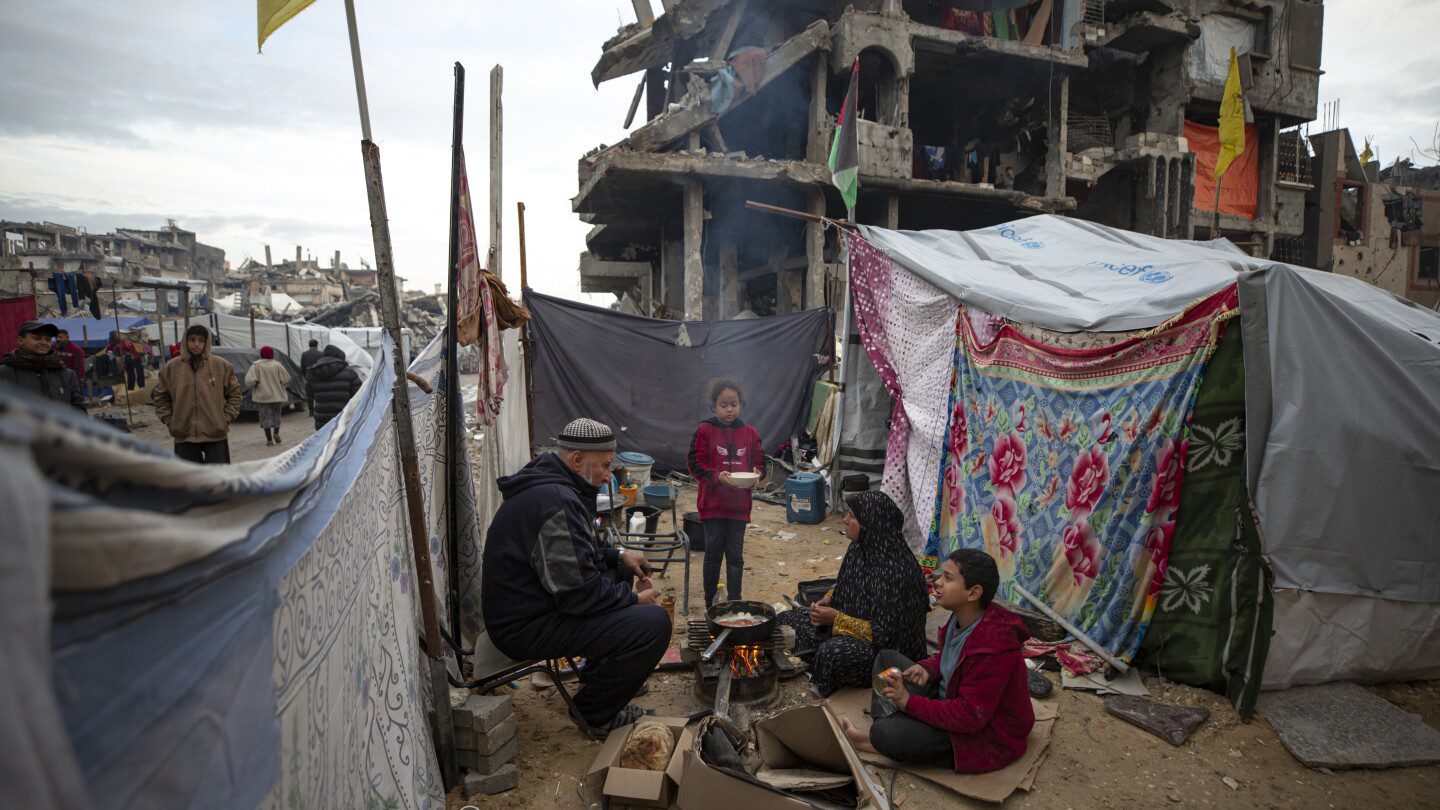
JERUSALEM (AP) – On Tuesday, Israeli Prime Minister Benjamin Netanyahu issued a warning about potentially retracting Israel’s ceasefire agreement in Gaza, instructing military forces to get ready to take action against Hamas if the group does not release additional hostages by Saturday.
Hamas announced on Monday and reiterated on Tuesday its intention to postpone the release of three more hostages, citing Israel’s alleged failures to comply with the ceasefire terms, including the insufficient delivery of tents and emergency aid supplies into Gaza.
During this escalating situation, U.S. President Donald Trump supported Israel’s demand for the expedited release of more remaining hostages on Saturday.
Trump Questions the Stability of the Ceasefire
Following a meeting with Jordan’s King Abdullah II at the White House on Tuesday, Trump predicted that Hamas would not meet his demands regarding hostages’ release.
“Personally, I don’t believe they’ll meet the deadline. They want to act tough. We’ll see what happens,” the president remarked about Hamas.
Since the ceasefire began, Hamas has freed 21 hostages across five exchanges, in return for over 730 Palestinian prisoners. The next phase is set to include the release of all remaining hostages, alongside an indefinite extension of the ceasefire. However, Trump’s comments about the hostage situation and post-war Gaza have destabilized the already fragile agreement.
It remains unclear whether Netanyahu’s warning refers specifically to the three hostages slated for release on Saturday or to all remaining captives, which would signify a significant shift from the ceasefire terms. Netanyahu’s office expressed its support for Trump’s demands.
As Trump addressed reporters in Washington and reaffirmed his demands, an anonymous Israeli official stated that Israel was adhering to Trump’s announcement regarding the release of the hostages, insisting that all would be freed by Saturday.
Netanyahu’s staff has also directed military forces to prepare for various scenarios in and around Gaza.
Trump noted that Israel should reconsider the ceasefire entirely if all approximately 70 hostages are not released by Saturday. Hamas dismissed his warnings, reiterating its position that Israel has breached the ceasefire and stating that it would only continue releasing hostages if both parties adhered to the agreement.
“Trump must remember that there is an agreement that both sides need to respect. This is the only pathway to bringing back the prisoners,” said Hamas spokesperson Sami Abu Zuhri. “Threats carry no weight; they only complicate the situation.”
The group later condemned Trump’s comments from the White House, characterizing them as a “call for ethnic cleansing” and accusing him of attempting to undermine the Palestinian cause and deny their national rights.
Hamas asserted its commitment to the ceasefire but did not clarify its position on delaying the planned hostage releases specified in the initial phase of the agreement.
Jordan — A U.S. Ally Under New Strain
Trump’s meeting with King Abdullah II in Washington also served to heighten pressure on Jordan to accept Gaza refugees, possibly on a permanent basis, as part of his ambitious vision for the Middle East.
“We aren’t going to buy anything. We’re going to have it,” Trump stated, referring to U.S. control over Gaza as the Jordanian king listened.
Although Abdullah II was queried repeatedly about Trump’s plans for the region, he refrained from making substantial remarks. He did express readiness to accept as many as 2,000 children from Gaza who are ill or suffering from cancer.
Last week, a top official from the World Health Organization announced that between 12,000 and 14,000 patients in Gaza still require medical evacuation, including 5,000 children.
Palestinians and the international community have reacted strongly against Trump’s recent comments suggesting that any Palestinians who might be expelled from Gaza would not have the right to return.
During the initial six-week phase of the ceasefire, Hamas agreed to release 33 hostages taken during its October 7, 2023, attack on Israel, while Israel committed to freeing nearly 2,000 Palestinian prisoners. The two sides have conducted five exchanges since January 19.
A resumption of conflict could occur in early March if an agreement on the more complex second phase of the ceasefire is not reached. If fighting resumes, Israel will confront a vastly altered landscape, having compelled hundreds of thousands of Palestinians to evacuate to southern Gaza in the earlier stages of the war. Many displaced individuals have since been permitted to return to what remains of their homes, presenting new challenges for Israel’s military operations in the region.
___
Metz filed this report from Rabat, Morocco. Associated Press writers Chris Megerian in Washington and Natalie Melzer in Nahariya, Israel, contributed to this coverage.









